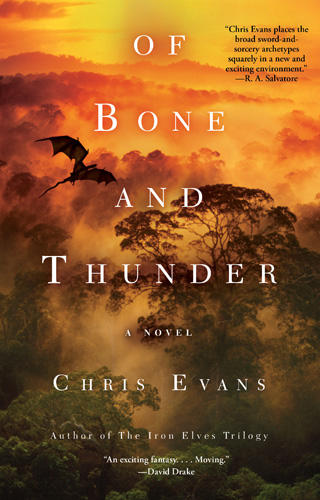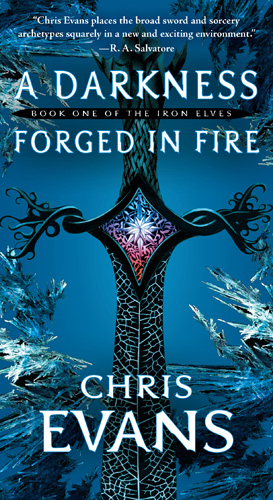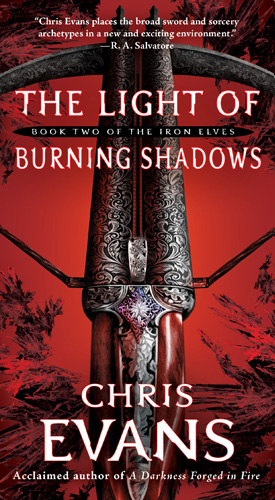If you follow the publishing industry at all you’ll have heard that Macmillan, one of the big publishing houses, went to Amazon with a new pricing model that would raise the price of their books sold on Kindle. In response, Amazon removed the BUY buttons from all Macmillan books (which include TOR), but just today released a statement saying they will acquiesce, sort of. You can read a lengthy recap below, courtesy of Publishers Lunch (www.publisherslunch.com) My question to you is, do you buy ebooks, and if so, is it a cost issue, or something else? I don’t own an ereader and prefer the old-fashioned kind of book, but then I’m a historian by training and spent (and still spend) many long days deep in archives, all musty and dusty and glorious.
The Battle Over the Agency Model Begins, As Amazon Pulls Macmillan Buy Buttons
As originally reported last night and many readers know by now, sometime yesterday evening the buy buttons for apparently all of Macmillan’s books–including bestsellers and top releases, and Kindle editions–were removed from Amazon’s site. Macmillan books remain listed but can be bought only through third-party Marketplace sellers, while Macmillan Kindle titles all lead to pages that read, “We’re sorry. The Web address you entered is not a functioning page on our site.” It is the first shot across the purchasing bow in big publishers’ efforts to reset ebook pricing above the loss-leader $9.99 price point and retake control over that pricing by moving from the wholesale selling model to an agency selling model (first reported exclusively in Lunch Deluxe on January 19), at least for ebooks published simultaneously with new hardcover releases. Kindle customers further reported on Amazon forums that any Macmillan books that were on their “wish lists” disappeared from those lists with no explanation, as apparently did Macmillan sample chapters that had been downloaded previously.
Macmillan has commented by way of a paid message to authors, illustrators and agents, reproduced below this story. Amazon has declined to comment thus far, either to the media or directly to their customers.
Among the books subject to the greatest potential short-term effect of Amazon’s buy-button removal is Andrew Young’s just-released THE POLITICIAN, which curiously still ranks at No. 9 on Amazon’s bestseller list (and has been between No. 4 and No. 6 today at Barnes and Noble.com). Hilary Mantel’s WOLF HALL was at 69 on Amazon last night, falling steadily today and now at No. 128. Atul Gawande’s THE CHECKLIST MANIFESTO: How to Get Things Right was at 34 last night on Amazon, now at No. 66,–and has risen from 112 up to 86 at BN.com in the same time period. (These numbers change slightly every hour we’ve been checking them.)
We were able to reach a couple of agents for some of Macmillan’s current bestselling authors. Co-head of the William Morris Endeavor books department Eric Simonoff, whose clients include Douglas Preston (author of the January Tor release Impact), told us: “The current model of Amazon selling Kindle editions as a loss-leader is fair for publishers and authors in the short-term but as we have told Amazon we don’t believe it is sustainable in the long term. Something had to give to prevent the ongoing devaluation of e-books. Macmillan is the first to draw a line in the sand but we expect not the last.”
Tina Bennett at Janklow & Nesbit, agent for Atul Gawande’s new bestseller, comments: “This development is very unfortunate for my author, but it’s also troubling for public health. The checklist approach that Gawande describes in his book is a major life-saving advance. It has been demonstrated to reduce harm to surgical patients by more than a third, but has yet to be widely adopted in US hospitals. To make THE CHECKLIST MANIFESTO unavailable for sale is the equivalent of blocking the distribution of a book announcing the discovery of penicillin.”
Agent Robert Gottlieb at Trident Media Group offered this view: “The agents I know feel the $9.99 price for new releases is not good for the business. They want the publishers to work with all the retailers in a peaceful manner. I don’t think it is in any book retailer’s interest both short and long term not to do business with companies like Macmillan and at the same time Macmillan needs Amazon. What will Amazon do if S&S moves in this direction or Hachette? If consumers can’t get the books they want from Amazon they will move to other retail sites for what they want.”
One senior publishing executive called the move by Amazon “fairly draconian” but added that their company had not received any threats of similar action from Amazon. As we’ve said before–though consumers have not yet gotten the message–the agency model that publishers are trying to implement with Apple and across their customer base actually lowers the publishers’ proceeds from each ebook sale and gives more profit to sellers versus the current loss-leading model behind the $9.99 price point.
Another senior publishing executive said that “Amazon may ‘spin’ that the consumer is at the heart of the decision, but really their goal is a monopoly position in books. Publishers don’t want a monopoly – they want consumers to have choice through a number of partners and channels. They want digital pricing which allows bricks and mortar retailers to survive and thrive alongside a growing digital market.” That person added, “This reaction proves what Amazon’s true motives are. It is a signal to any other publishers not to change the model and weaken Amazon’s pathway to a monopoly. I hope authors, agents and publishers see what these motives are and stand by Macmillan.”
Among remarks from Macmillan authors posting online, perhaps one of the most curious came from Sherrilyn Kenyon, who posted to Facebook and then later in the day removed her entry, which read in part: “All of you asking why you can’t find my books on Amazon Kindle? It seems that Amazon is the one to blame. They are in a disagreement with my publisher and to prove a point, they have removed Macmillan books from their Kindles.
“You know, as a Kindle owner, I have problems with this. They’re not cheap and I bought it so that I could download the books I wanted to read. I don’t like a store taking something from me like this without warning. It’s just like when Amazon removed books from my Kindle that I’d paid for because they didn’t have permission to sell them.”
In comments over at John Scalzi’s blog, bestselling Simon & Schuster author Scott Westerfeld writes, “The real power we authors have is removing links to Amazon from our websites and such…. Random blackouts do not make customers happy.”
Amazon’s own forums have been quite busy with postings today, with customers expressing a wide range of everything from support to dismay with the etailer’s move. The most damaging aspect of their action in the short-term may be the removal of Kindle “wish lists” and sample chapters. For some posters that action has echoes of the incident last summer when Amazon deleted copies of certain books from Kindle owner’s libraries, in violation of the site’s own terms of use. As one person writes, “we do feel vulnerable, even if Amazon is right to fight. Wishlists disappeared, with no backup of what the titles were. Sample books we chose to download lead to links that say Error. It reminds us that we do not have control over the situation, even if we backup, since what is offered today may not be available tomorrow.” (Amazon apologized for that earlier incident, provided refunds to customers, and eventually settled a customer lawsuit.)
While many customers support Amazon’s efforts to provide low prices, one “open letter” suggests that the company let customers decide for themselves what is the right price. “Here’s a thought Jeff: You list them and I will decide if I want to buy them or not. How’s that sound? I agree with you they should not cost more than $10, but I can enforce that with my pocketbook. I don’t need you to make a big hairy freakin deal out of it on my behalf and I certainly don’t need you to limit my choices based on this principle.”
Here’s how Macmillan sees it:
To: All Macmillan authors/illustrators and the literary agent community
From: John Sargent
This past Thursday I met with Amazon in Seattle. I gave them our proposal for new terms of sale for e books under the agency model which will become effective in early March. In addition, I told them they could stay with their old terms of sale, but that this would involve extensive and deep windowing of titles. By the time I arrived back in New York late yesterday afternoon they informed me that they were taking all our books off the Kindle site, and off Amazon. The books will continue to be available on Amazon.com through third parties.
I regret that we have reached this impasse. Amazon has been a valuable customer for a long time, and it is my great hope that they will continue to be in the very near future. They have been a great innovator in our industry, and I suspect they will continue to be for decades to come.
It is those decades that concern me now, as I am sure they concern you. In the ink-on-paper world we sell books to retailers far and wide on a business model that provides a level playing field, and allows all retailers the possibility of selling books profitably. Looking to the future and to a growing digital business, we need to establish the same sort of business model, one that encourages new devices and new stores. One that encourages healthy competition. One that is stable and rational. It also needs to insure that intellectual property can be widely available digitally at a price that is both fair to the consumer and allows those who create it and publish it to be fairly compensated.
Under the agency model, we will sell the digital editions of our books to consumers through our retailers. Our retailers will act as our agents and will take a 30% commission (the standard split today for many digital media businesses). The price will be set for each book individually. Our plan is to price the digital edition of most adult trade books in a price range from $14.99 to $5.99. At first release, concurrent with a hardcover, most titles will be priced between $14.99 and $12.99. E books will almost always appear day on date with the physical edition. Pricing will be dynamic over time.
The agency model would allow Amazon to make more money selling our books, not less. We would make less money in our dealings with Amazon under the new model. Our disagreement is not about short-term profitability but rather about the long-term viability and stability of the digital book market.
Amazon and Macmillan both want a healthy and vibrant future for books. We clearly do not agree on how to get there. Meanwhile, the action they chose to take last night clearly defines the importance they attribute to their view. We hold our view equally strongly. I hope you agree with us.
You are a vast and wonderful crew. It is impossible to reach you all in the very limited timeframe we are working under, so I have sent this message in unorthodox form. I hope it reaches you all, and quickly. Monday morning I will fully brief all of our editors, and they will be able to answer your questions. I hope to speak to many of you over the coming days.
Thanks for all the support you have shown in the last few hours; it is much appreciated.
All best,
John
Here’s what Amazon had to say:
Dear Customers:
Macmillan, one of the “big six” publishers, has clearly communicated to us that, regardless of our viewpoint, they are committed to switching to an agency model and charging $12.99 to $14.99 for e-book versions of bestsellers and most hardcover releases.
We have expressed our strong disagreement and the seriousness of our disagreement by temporarily ceasing the sale of all Macmillan titles. We want you to know that ultimately, however, we will have to capitulate and accept Macmillan’s terms because Macmillan has a monopoly over their own titles, and we will want to offer them to you even at prices we believe are needlessly high for e-books. Amazon customers will at that point decide for themselves whether they believe it’s reasonable to pay $14.99 for a bestselling e-book. We don’t believe that all of the major publishers will take the same route as Macmillan. And we know for sure that many independent presses and self-published authors will see this as an opportunity to provide attractively priced e-books as an alternative.
Kindle is a business for Amazon, and it is also a mission. We never expected it to be easy!






I’m with you Chris. I love the feeling of holding books, of flipping through the pages and of the smells. I love the smell of new books, but I love the smell of old books even more. I like putting post-its in my book to mark a place if I want to return to it or if its for discussion in my book club(I can never seem to make myself write in books- it seems…. sacrilegious). I recall when I first found out that ereaders existed and I was startled and even slightly nauseous. I’m sure some people find it fantastic. Just a week ago, a friend showed me their Kindle and they seemed quite happy with it. But I can’t get over the idea of being deprived of the physical book itself. Not being able to run my hands along the pages, to occasionally have the ink rub off on my hands even, and to be able to lend books out- to just hand a good book to a friend! These pleasures I would not give up by choice.
The cost is also a thing for me. To someone like me who rarely buys a new book, it seems outrageous to buy a Kindle or ereader for who knows how much money and then even spending $10 per book is, to me, a lot. Now, I’m not saying that authors and publishers and everyone else in the business shouldn’t get their due and I’m glad there are people out there who will buy books that are new, which supports the industry. But I’m of the thrifty sort and actually much prefer shopping for books at library used book sales (I once bought 25 books for $3 at a library), garage sales, thrift stores, and occasionally, at the Half Price Book Stores that there are a good handful of in Austin (I’m quickly beginning to love those stores). My preference is partly to price- I’m unemployed, but even when I was working or in school, I’ve always favored used books- I like how they have been previously loved. I like how the physical book has a story behind it, a mystery to me, as well as just the story that the words spell out inside the book.
But I’m ranting…
Rant away, it’s music to my ears. It’s not that I abhor new technology…exactly, but I grew up with books and they are in my blood, certainly in my lungs. A good portion of my library is composed of used books and I can’t begin to count the hours I’ve browsed the shelves in little bookshops all across North America and anywhere else I’ve traveled just looking to see what I could see. To me, there’s magic in a book held in my hands that I don’t think I’ll ever feel with an electronic device.
Again, I agree. Magic seems exactly the right word for it. Electronics, while being useful, and improving our lives, etc etc, are a bit impersonal and they lack that spark I feel when I am near books (I am referring to that mental and emotional spark, of course, and not the physical, electrified spark that those devices are actually capable of giving, but I’m sure you understood what I meant.)
Also, I can’t imagine reading any of the classics on an electronic device- For example, my current read is “Jane Eyre” (though it is not the first time I’ve read it), and I feel that the language used, the time period represented, the impassioned speeches and even the desperation of her bout with poverty/homelessness would seem a bit odd read off of an electronic device. A Sci-Fi, or maybe a contemporary crime thriller, or even just contemporary fiction might fit better with that medium. I, at least, would not feel quite right reading something written centuries ago unless it was in physical book form, though I speak for myself and not the rest of mankind. I would feel entirely unconnected with the plot and characters. But books- they are timeless.